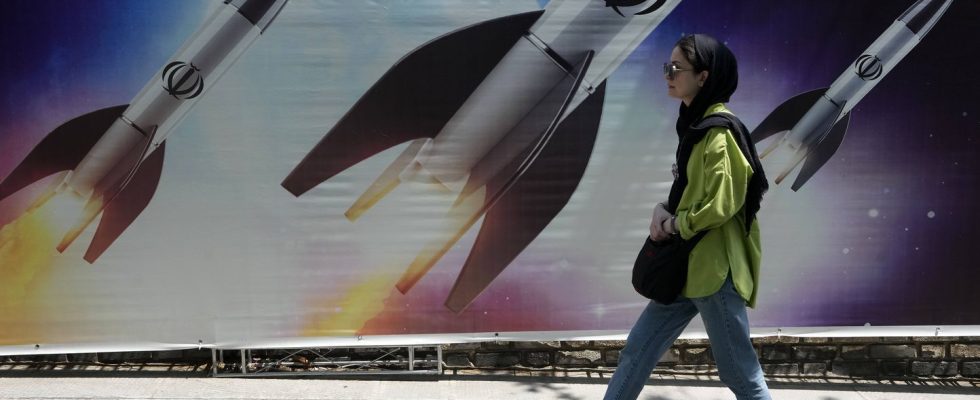Even before sunrise, the drones descended on Iran. This Friday at dawn, explosions were heard near a military base in the Isfahan region, in central Iran. But what happened? Who is behind this attack? 20 minutes takes stock for you.
What happened ?
Early Friday, Iran’s Fars news agency reported three explosions near a military base in Qahjavarestan, between Isfahan and its airport.
Drones were shot down but “there was no missile attack,” said the spokesperson for the Iranian space agency. There have “been, so far, no air attacks from outside the borders against Isfahan or other parts of the country,” he added. According to New York Timeswhich cites Iranian officials, the attack was carried out by small drones, probably launched from Iranian territory.
What is the damage?
Iranian authorities have downplayed the impact of the explosions. It is difficult to know exactly what the damage is. Fortunately, however, the nuclear installations in the Isfahan region are “completely safe”, indicated the Tasnim agency in the wake of the attack. “No damage” to nuclear sites, confirmed the International Atomic Energy Agency.
Who is behind this attack?
These explosions are blamed on Israel. But Tehran did not directly accuse Tel Aviv, which did not claim them. American media, citing American officials, claimed that it was an Israeli operation carried out in response to an unprecedented Iranian drone and missile attack against Israel on April 13. Israel has vowed to make Iran, its sworn enemy, pay the price for its attack.
“We have no comment at this time,” an Israeli army spokesperson said about the explosions. For his part, the Washington Postciting an Israeli official who requested anonymity, said the attack was intended to show Iran that Israel had the capacity to strike inside its territory.
What are the international reactions?
The international community has called for restraint. The United States “was not involved in an offensive operation” declared Antony Blinken, stressing that the “objective” of his country and the other members of the G7 was “de-escalation”. Joe Biden’s administration has been publicly insisting for several days that it does not want “an extended war with Iran.”
“It is high time to stop the dangerous cycle of reprisals in the Middle East,” reacted, for his part, UN Secretary General Antonio Guterres, quoted by his spokesperson. Several Western and Arab countries have called for restraint.

